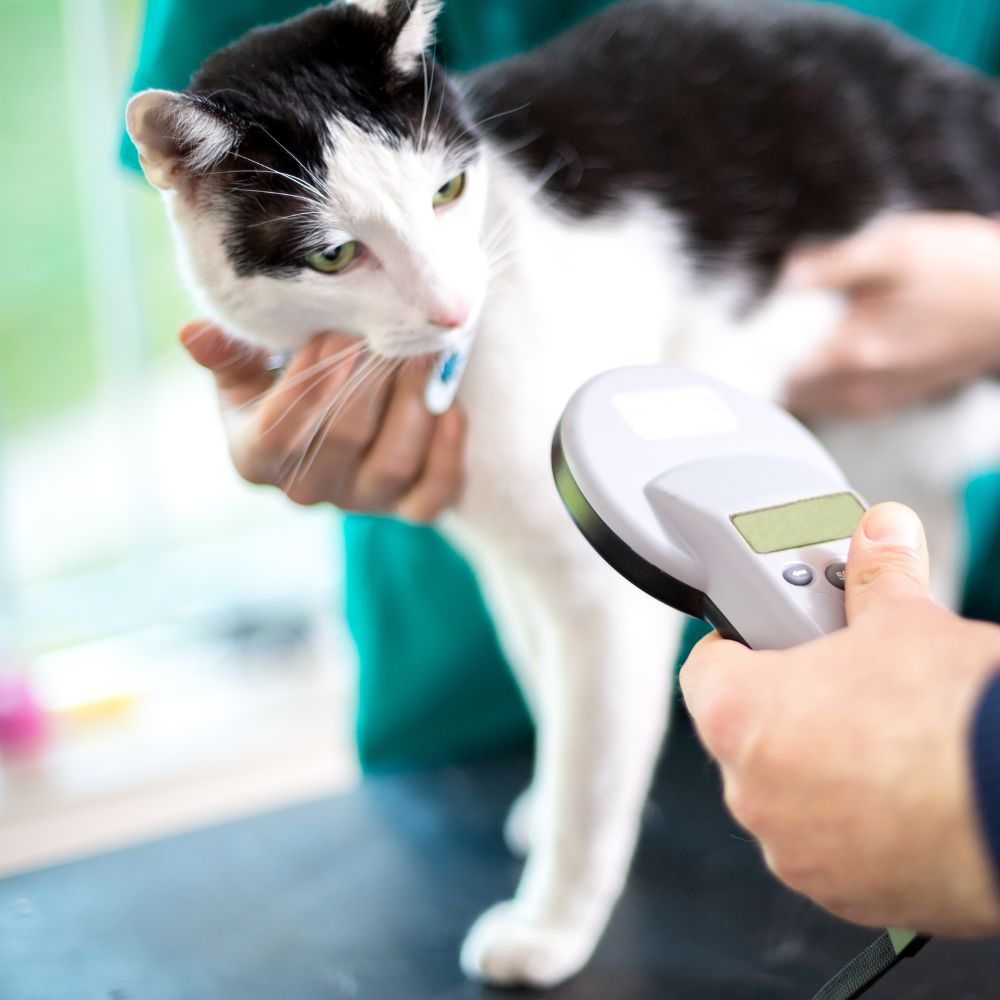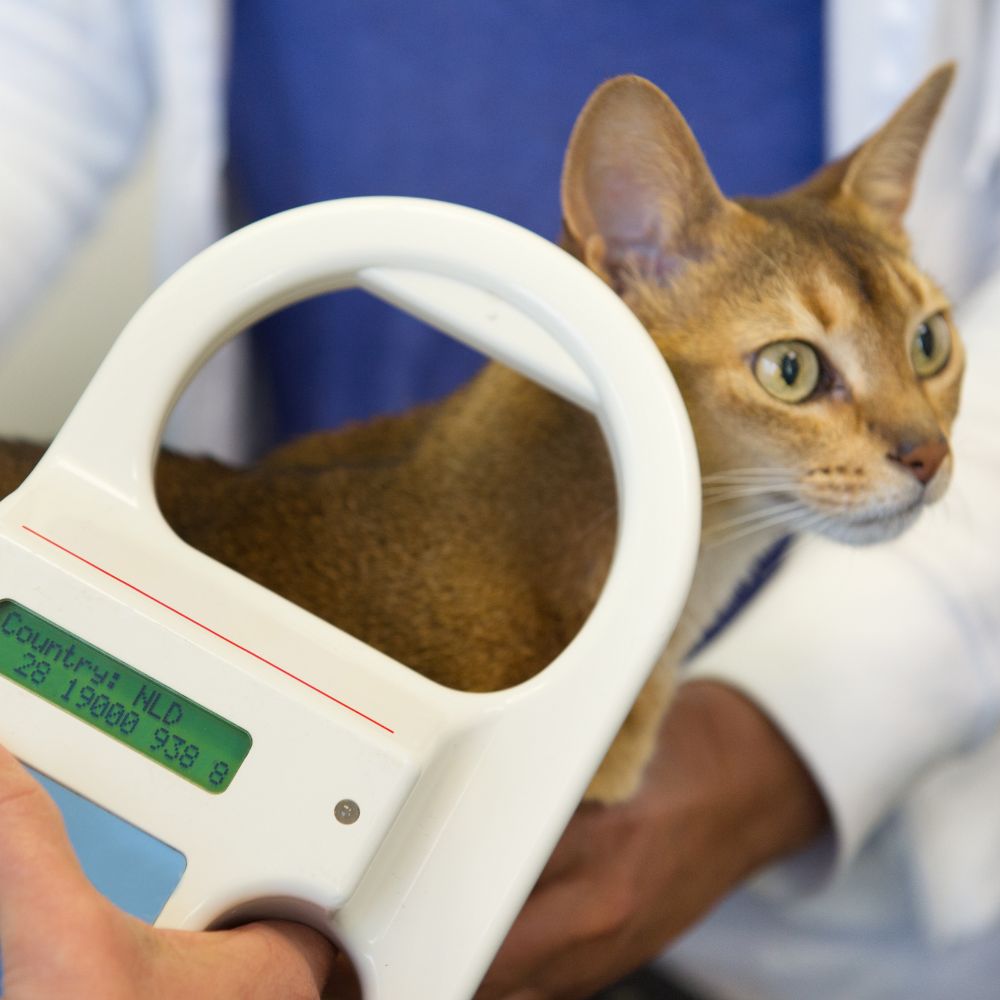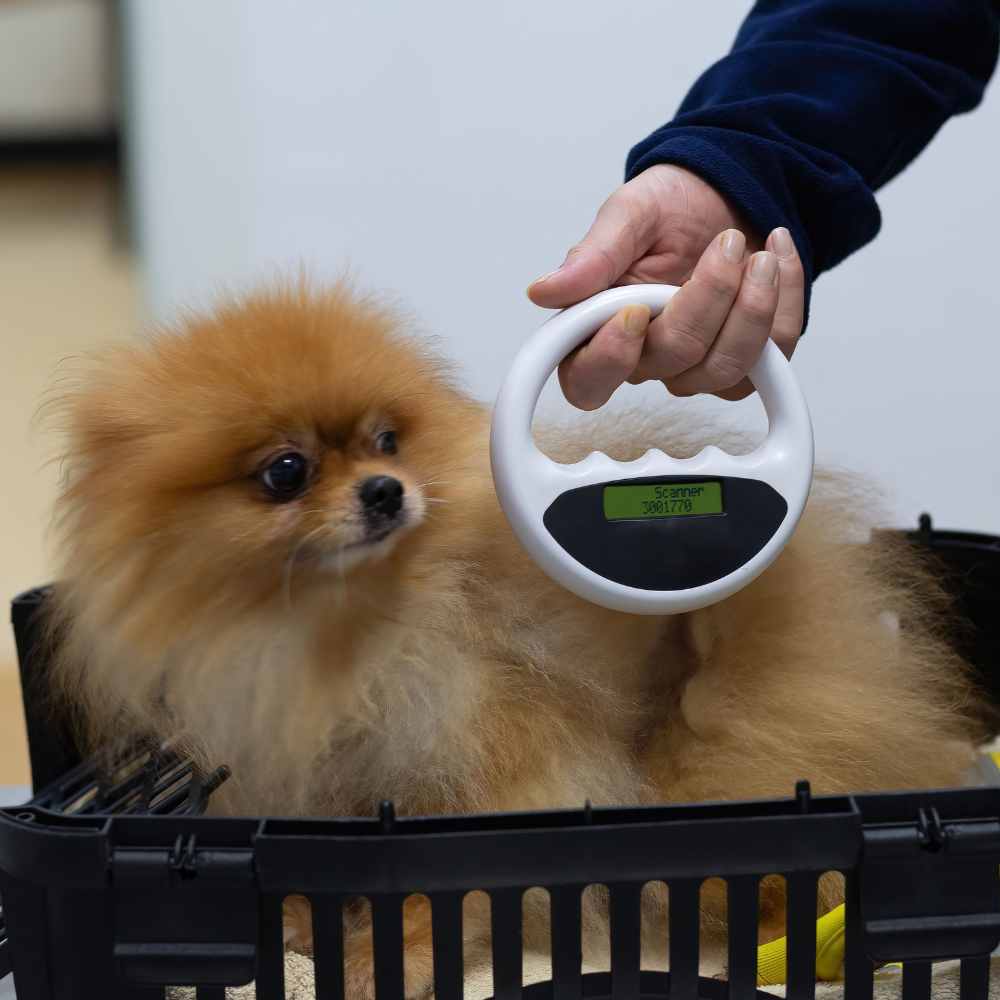
Pet Microchipping
No one ever plans to lose a pet, but it can happen more easily than you may think. Thankfully, our pet microchipping services in Lexington, OH, offer a permanent, reliable form of identification that dramatically increases the chances of a joyful reunion.
What Is Pet Microchipping?
Pet microchipping is a quick, painless procedure in which a tiny microchip — about the size of a grain of rice — is implanted beneath your pet’s skin, usually between the shoulder blades. This chip contains a unique identification number linked to your contact information in a national pet recovery database.
Unlike collars or ID tags, a microchip can’t fall off, be removed, or become unreadable. It’s a lifetime form of identification for your pet.

How the Process Works
Painless Placement
The chip is inserted with a needle in just a few seconds — no anesthesia needed. Most pets react like they’re receiving a routine vaccine.
Database Registration
We’ll walk you through registering the chip to your name, phone number, and address. This step is crucial for the chip to be effective.
Nationwide Accessibility
If your pet is found and scanned at a veterinary clinic, shelter, or animal control agency, the chip’s ID number can be used to contact you immediately.
Lifetime Protection
Once registered, the chip provides permanent identification — there’s no need to replace it unless it fails, which is rare.

Why Microchipping Is So Important
According to the American Veterinary Medical Association (AVMA), microchipped dogs are over twice as likely to be returned to their owners, and microchipped cats are over 20 times more likely to make it back home compared to those without chips.
Other reasons to consider dog and cat microchipping:
- Even indoor-only pets can escape
- Collars and tags can fall off or be removed
- Microchips work across state lines
- It’s a one-time procedure with lifetime benefits
- Microchipped pets are often reunited faster
Who Should Be Microchipped?
The answer is simple: every pet. At Appleseed Valley, we recommend microchipping:
- Puppies and kittens during early wellness visits
- Adult pets of all lifestyles — indoor or outdoor
- Senior pets who may become disoriented more easily
- Newly adopted or rescued pets
- Pets without a reliable collar or tag
Even if your pet already wears ID tags, a microchip adds another critical layer of security.

Protect Their Future Today
Don’t wait for a scare to realize the value of microchipping — this one tiny chip can make a world of difference for your best friend’s safety. Book your visit today and give your pet the best chance of being reunited with you, no matter where life takes them.
